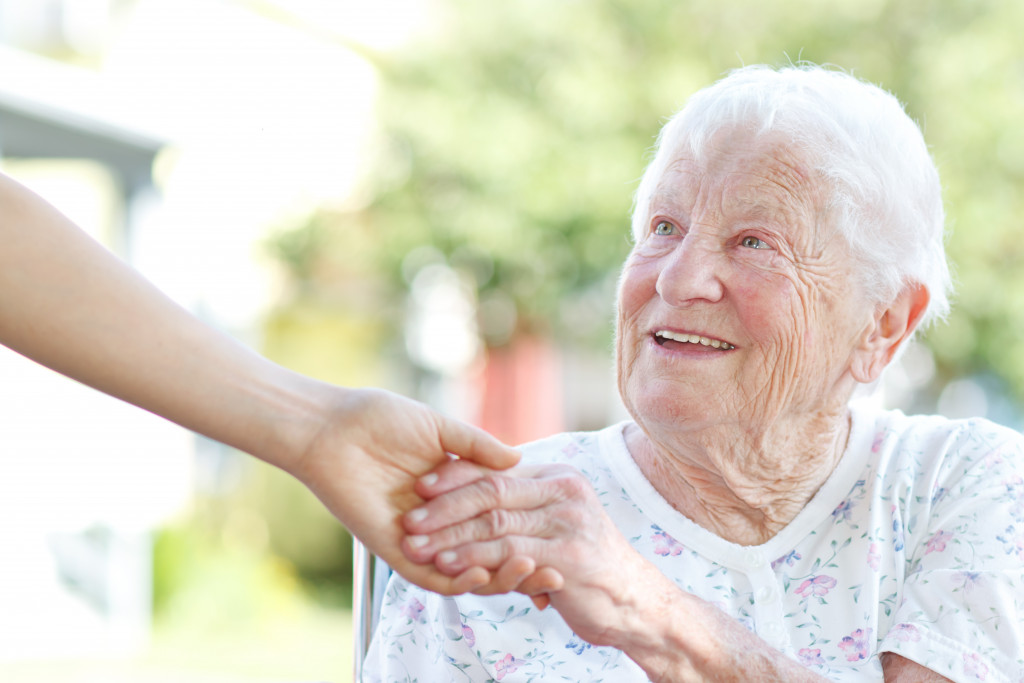If you have a senior loved one who has lost their vision, there are some things you can do to help them out. There will be times when they need your help with daily activities, and others where they may want to try something new on their own.
Vision loss is a critical issue for seniors for a few reasons. First, people rely on their vision to complete many everyday activities, such as bathing, cooking, and grocery shopping. So, when seniors lose their vision, it becomes much more difficult for them to live independently. Second, seniors with vision loss are at an increased risk of falls and other accidents. This is because they often have difficulty navigating their environment and knowing where they are in relation to their surroundings.
Finally, depression and isolation are common among seniors with vision loss. They may feel lonely and isolated from their friends and family members, and this can lead to a decline in their overall health.
Let’s take a look at how best to support someone as they learn how to navigate life with an impaired sense of sight.
Make Their Home a Safer Place
Caregivers and family members should try to create a safe and comfortable environment for the senior. This means removing potential obstacles from their path, such as cords or wires on the floor, and making sure all furniture is in its proper place.
There are other ways to make a home safer for seniors with vision loss. One is to install grab bars in the bathroom and use non-skid adhesive strips on the floor of the shower. You can also put contrasting tape on the edges of stairs to help seniors see where they’re going. Another important thing to do is keep all pathways and rooms well-lit. You can do this by using lamps with bright light bulbs or installing LED lights throughout the home.
At some point, for their own safety, a senior with vision problems may need to move in with a family member, hire a helper or a caretaker, or enter a care facility. A reliable senior living advisor can help determine the best option for older adults and their family members.
Encourage Them to Try New Activities

Seniors with vision loss may feel like they can’t do anything anymore, but that’s not true! There are plenty of activities they can try, such as listening to audiobooks or gardening.
Audiobooks are a great way for seniors to stay entertained and engaged, and they can be listened to at any time of day. In addition, audiobooks can help seniors improve their reading skills and vocabulary. There are many types of audiobooks available, so seniors can find one that interests them.
Gardening is a fun and rewarding way for them to spend their time, and it also has a number of health benefits. In addition to being a great cardiovascular workout, growing their own vegetables can make them feel more connected to the world around them.
There are also gadgets and tools that are specifically made for people with vision impairment. These include laptops, tablets, and smartphones that have features such as voice-to-text and large print. Many seniors rely on adaptive technologies like these to help them carry out everyday tasks.
Help Them Take Care of Their Finances
When you can’t rely on your vision, it can be difficult to manage your finances and stay independent. However, there are a few things you can do to make things a bit easier.
One of the most important things is to have an up-to-date budget. This will help you keep track of your expenses and make sure you’re not overspending. You should also try to limit your use of credit cards as much as possible. Not only are they difficult to keep track of, but they can also get you into a lot of debt.
Another thing you can do is set up a system for paying bills. This can include using online banking or signing up for autopayments. It’s also a good idea to have the bills sent directly to your house. This will make them easier to manage and lessen the likelihood of late payment.
As you can see, there are a number of strategies to support someone with vision loss in their everyday activities. A few simple steps can go a long way toward helping them adapt to life as a senior with vision loss.
The more proactive measures you take now, the less likely it is that your loved one will become isolated from friends and family members due to depression or other mental health concerns.

